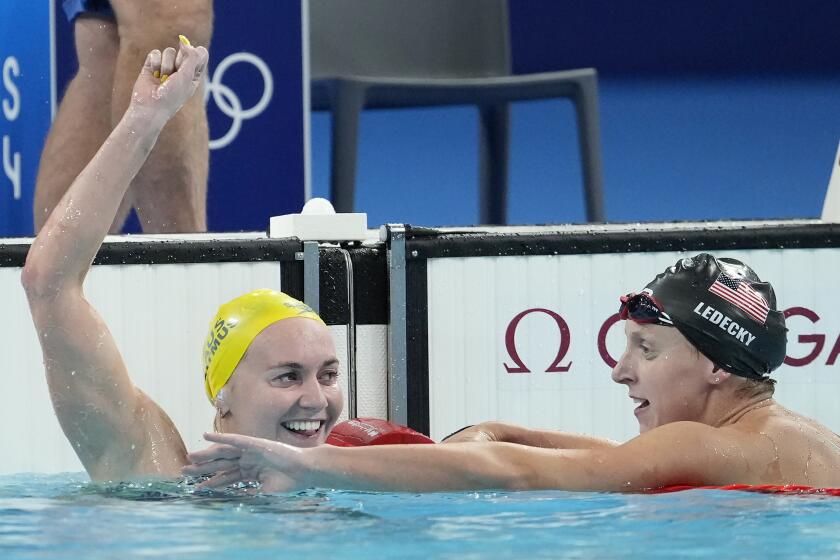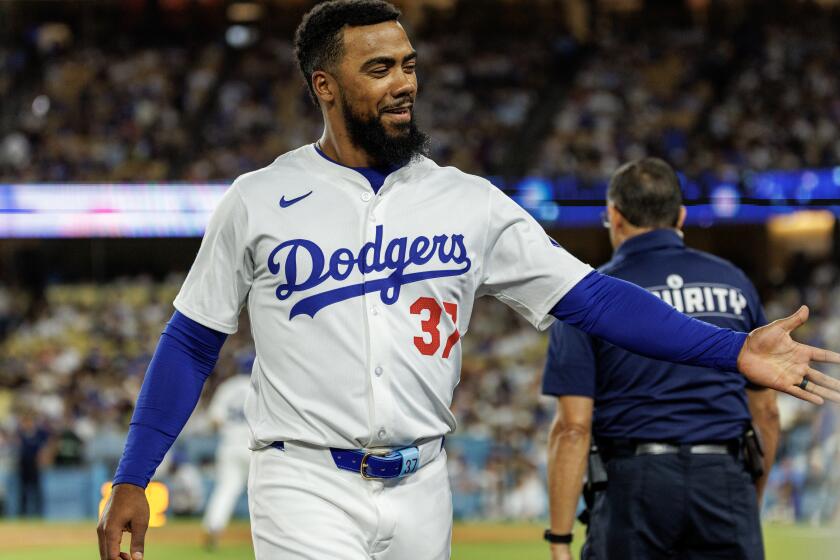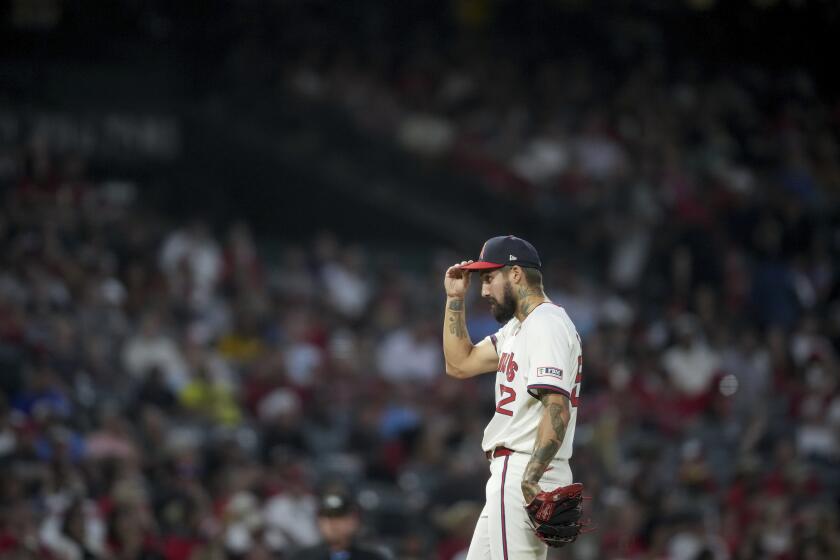A Boy of Summer for All Seasons : Baseball: Sometimes, heroism is simply stepping up to the plate, day after day.
Growing up in a small town in Minnesota in the early 1950s, my friends and I eagerly awaited the spring day when the snows would melt and we could start playing baseball again. Sometimes we even played in mud and water. We played baseball every day, all spring and summer.
Herbie Roberts was the least skilled player in the group. When we would choose up sides, Herbie was always picked last. He was not only the smallest and youngest player, but he also wore a stupid-looking hat that covered most of his forehead and ears. Herbie’s baseball glove was so crunched up and wrinkled that it seemed impossible that a baseball could fit into any part of it. Usually, it didn’t. Herbie would drop most of the balls that were hit to him. When he managed to catch a ball, he seemed as surprised as the rest of us, for he would stare at his glove with disbelief.
But Herbie loved baseball, as we all did. It was our small-town version of the endless summer. Playing pickup games all morning. Pretending we were our favorite major league stars. Trading baseball cards late into the night. Life was baseball. It was the only thing that mattered.
Then one day, Herbie Roberts didn’t show up for a game. Word quickly spread across town that an ambulance had picked him up the night before. With sirens wailing, he was rushed to a polio- treatment center in Minneapolis. After hearing about Herbie’s illness, we started our morning baseball game as usual, but we quickly lost interest and went our separate ways. Every time I heard a siren, I would think about Herbie Roberts, most likely confined to an iron lung for the rest of his life.
In April of 1955, with news of the polio vaccine, we realized that heroes didn’t have to play games. The serious business of life could also produce heroes, like Jonas Salk and other medical researchers. Baseball became a very small game in a very big universe.
As the years passed, I eventually stopped thinking about Herbie Roberts. The sounds of police and ambulance sirens were still disconcerting, but for other reasons. Baseball also didn’t matter anymore. I had grown weary of it. Then a few years ago, a relative in Minnesota sent me a brief newspaper article, with a recent photograph of Herbie Roberts. Apparently, Herbie had been one of the lucky ones. Polio had crippled him, but he was never confined to an iron lung.
In the photograph, Herbie smiled broadly as he leaned forward on two crutches that supported his twisted legs. His arms and shoulders were strong and muscular from the many years of supporting his body weight. The article itself indicated that Herbie, after many operations and years of rehabilitation, had lived an extremely productive life.
I was astonished. The little guy with the stupid-looking hat and the rain-soaked baseball glove, after fighting for his life against polio, had accomplished much more than any of his childhood friends, including myself. In the photograph, Herbie was making his way slowly into a major league baseball stadium to watch a game. Unlike me, Herbie had apparently never lost his love for baseball.
I don’t know what to make of that.
More to Read
Go beyond the scoreboard
Get the latest on L.A.'s teams in the daily Sports Report newsletter.
You may occasionally receive promotional content from the Los Angeles Times.






